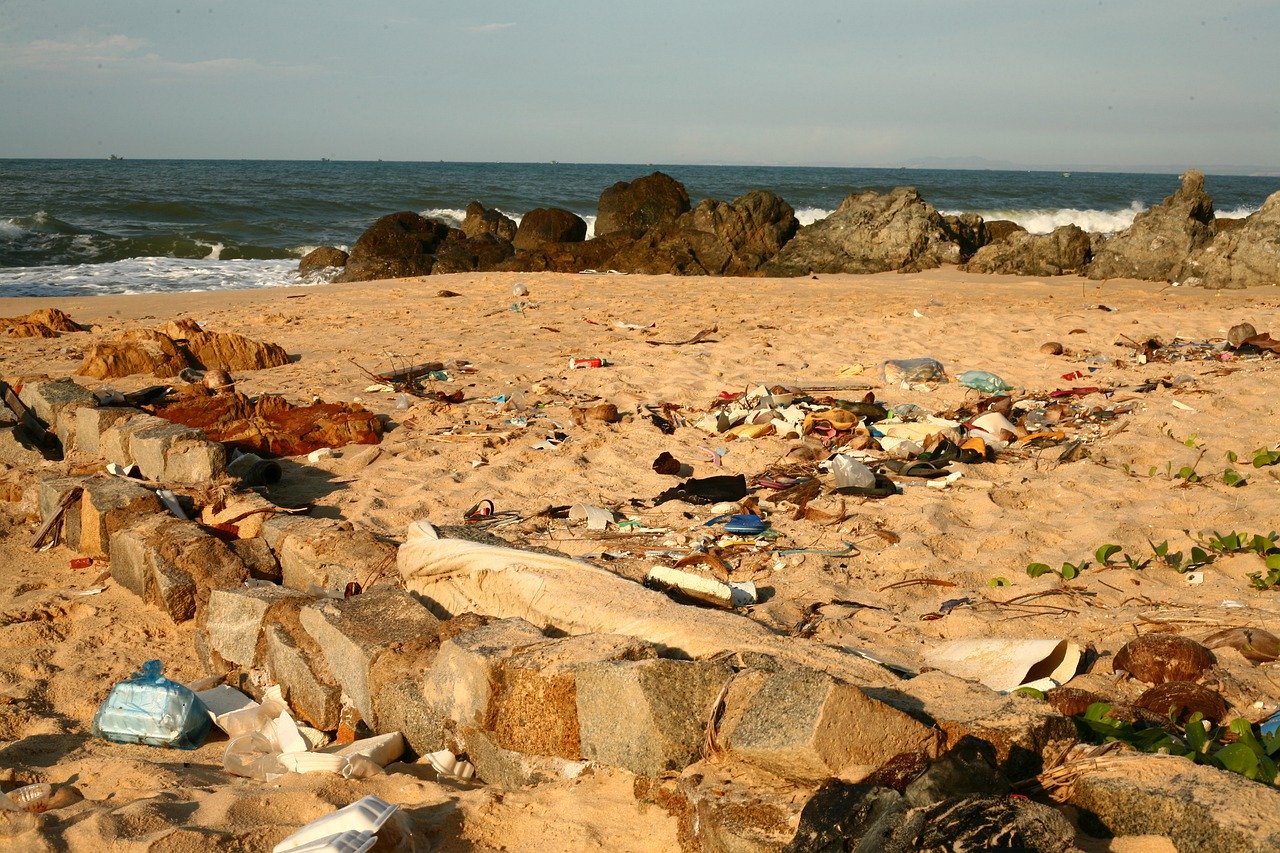Drastic plastic action by consumers and industry ‘crucial to meet climate goals’
The influential Overseas Development Institute warns that global climate goals are unachievable without drastic action by industry and consumers to curb plastic use.
A new report by the ODI think tank published during Climate Week in New York says that fossil fuel emissions from plastic production will rise three-fold by 2050 on current trends.
But meeting climate goals means that we have to reduce plastic consumption by 50 per cent over the next 30 years and ensure that 75 per cent of the remaining plastic is recycled.
The detailed ODI research finds that these figures can only be achieved through large-scale changes in industry and in consumer action, from us all actively reducing our plastic use to a massive cut in the use of oil and gas to produce plastics.
This is an area where at SaveMoneyCutCarbon we have been working hard to support with a range of sustainable living products that do make a big difference in the battle to ditch plastics. From beeswax wraps to laundry eggs, and bamboo pet bowls to bamboo kitchen roll – and more – you can reduce your single-use plastic waste.

Phasing out plastics
New analysis in the Phasing out Plastics report from the global affairs think tank states that this also requires industries to use plastic produced without fossil fuels and the ODI researchers stress that expansion in adoption of alternative forms could result in a drastic cut in global emissions from plastics from 1,984 million tonnes of carbon dioxide equivalent (Mt CO2e) in 2015 to 790 Mt CO2e in 2050.
The report outline the system-wide solutions that will be needed to realise these changes, with calls for:
- Governments to introduce regulations to rapidly phase out single-use plastics, incentivise the use of alternative materials (for example, through carbon taxes) and invest in recycling capacity
- Businesses to adopt principles of sustainability and circular economy in product design
- Consumers to reuse and recycle plastics, but to also be aware of the climate effects of the plastics that they use.
The main report is supported by four further studies focused on the automotive, construction, packaging, and the electrical & electronic equipment sectors.
Build back greener
Looking at a phased removal of fossil-fuel plastics in these key manufacturing sectors, it highlights “opportunities for industry to spearhead efforts to build back greener from Covid-19”.
The ODI forecasts that plastic consumption could be reduced by more than 95% in the construction sector, 78% in the packaging sector, 57% in the electronics sector and 17% in the automotive sector. Currently, these industries collectively account for around 60% of total plastics consumption.
But it warns that if current trends continue, emissions from plastics are set to rise three-fold in 30 years – “dashing hopes of achieving the Paris Agreement’s aims of zero emissions”.
Andrew Scott, lead researcher, said:
“Despite substantial attention being paid to plastic pollution and recycling, greenhouse gas emissions from the production of new plastics are set to increase dramatically. To confront the climate crisis, we must truly recognise plastics as a climate issue and raise our ambition beyond reducing and recycling to significantly phasing out plastics all together. Our research shows that this is technically possible – but it will require public and political will, as well as leadership from industry.
“There’s a lot of talk about kickstarting the global reset from Covid-19 with a stronger, greener recovery. We can start by phasing out plastics. Given their devastating impact on our planet, it can be hard to comprehend that plastics only entered the mainstream in the second half of the 20th century. With concerted action from business, government and consumers, we could make the first half of the 21st century the time to phase them out.”
The scene is being set at the UN’s New York climate summit and beyond for plastics to be a major focus for arguments around global decarbonisation efforts. In the oil industry, there are strong arguments that growing demand for petrochemicals supports new oil and gas investment. Against that, there are credible forecasts that demand has peaked, particularly in transport with the rise of electric vehicles.
Stranded assets
Investment analysts also warn that growth of new alternatives to conventional plastics and business models based on the circular economy could means that the plastics industry would face similar risks of stranded assets to those experienced by the fossil fuel sector in recent years.
The urgent need for all forms of action on the environment was amplified by the Prince of Wales in a recorded message played at the virtual opening of Climate Week on Monday.
He said:
“Without swift and immediate action, at an unprecedented pace and scale, we will miss the window of opportunity to ‘reset’ for… a more sustainable and inclusive future. In other words, the global pandemic is a wake-up call we cannot ignore.”
The prince underlined how the climate crisis “has been with us for far too many years – decried, denigrated and denied. It is now rapidly becoming a comprehensive catastrophe that will dwarf the impact of the coronavirus pandemic.”
At the same time, a new poll indicates growing concern globally about climate change, although there are differences about the level of urgency required to tackle the issue. The Globescan poll (1) of 27 countries shows that around 90 per cent of people view climate change as a “very serious” or “somewhat serious” issue.
And early optimism about the climate benefits from the global lockdown, with a big drop in greenhouse gases and air pollutants, has been shaded by a study (2) which suggests that by 2030, global temperatures would only be 0.01C lower than expected. However, the research team, led by the University of Leeds, emphasises that a green recovery could keep the world from exceeding 1.5C of warming by the middle of this century.